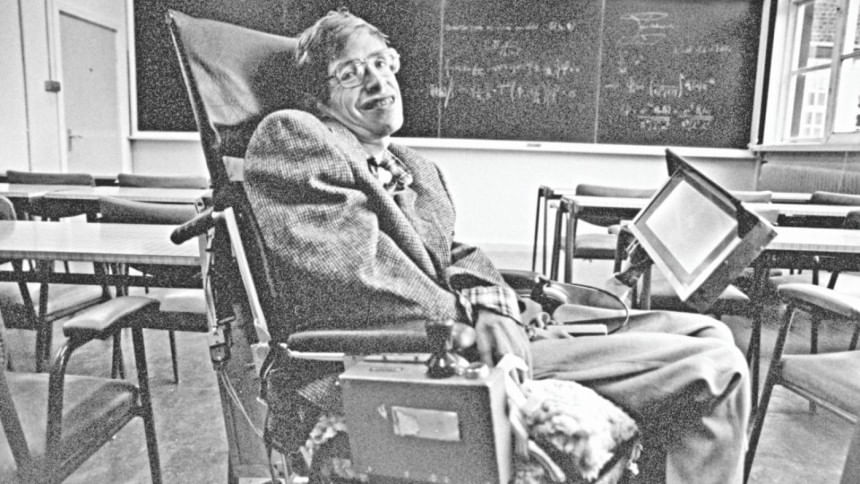A brief history of Stephen Hawking

Stephen Hawking, brilliant scientist and one of the most renowned and important contributors to theoretical physics and cosmology of all time, passed away on March 14, 2018.
I think it's safe to say everyone is familiar with the basics to Stephen Hawking's life and fame. Even amongst people who've never touched a Physics textbook in their life, the name “Stephen Hawking” will ring a bell. After all, it's hard to shake off the image of him sitting in his iconic wheelchair and his computerised voice talking about the mystery of the universe. If Albert Einstein was a household name as far as science went, Hawking is just as famous, if not more.
Hawking's greatest contribution to science is built on Einstein's work. Hawking used the basis of Einstein's General Theory of Relativity to help prove the universe started from a point of nothing, scientifically dubbed a “singularity”. His contributions don't end there though. He'd also eventually go to discover Hawking radiation — the radiation emitted by a black hole, a theory he was initially sceptical of, and this would be eventually recognised as his greatest discovery. Given that at the time black holes were more theory than fact, this was an important breakthrough in helping us understand what was almost merely just a concept and nothing more at the time.
His discovery would be even more revolutionary in cosmology as he brought together the laws of gravity, thermodynamics, quantum mechanics, and relativity to point towards a “theory of everything”, something physicists describe as a singular theory to explain everything the universe operates on, kind of like a rule book of physics itself.
It's important to remember that he did all this in the 70s, after being confined to a wheelchair because of a motor neurone disease. During his initial diagnosis in his final year at Oxford, he was only given 2 years to live, which he defied for the next 55 years, choosing to be determined about his work and eventually becoming a champion for disability rights as he helped campaign for better accessibility and housing suited for disabled needs in Cambridge. While many did see him as an example of overcoming adversity in the form of disability, Hawking himself often brushed aside that part of his persona, always choosing to consider himself a scientist first and foremost.
His mainstream popularity was boosted by his bestselling book, A Brief History of Time, which still remains one of the most widely read books to this day. I picked up the book when I was 12, and the fact Hawking wrote about his understanding of the universe in the book in non-technical terms made it easily digestible and interesting. I probably speak for many when I say the book was responsible for a lot of people getting into learning more about physics and cosmology in particular.
As if his celebrity scientist status wasn't cemented enough, he'd often make appearances in various science shows to talk about cosmology, and even had stints in pop culture cameos, guest starring on Star Trek, The Simpsons and The Fairly OddParents in memorable appearances. His trademark computer-generated voice and his sense of humour were all distinctive whenever he appeared on a show.
Hawking was also one to ponder about the future of humanity, openly voicing his thoughts about artificial intelligence and the danger it may bring to the human race. He also was a critic of wars, and inaction on climate change, singling out the current U.S. President's policies as potentially detrimental to any progress towards solving global warming.
Stephen Hawking passed away on the same day Einstein was born (which is also Pi Day). The entire world will remember him as someone who never gave up despite all the setbacks he faced in his life, and as one of the most brilliant minds of all time.
Nuhan B. Abid is someone who actually thinks puns and sarcasm are top class forms of humour. Tell him that 'sar-chasm' is TOTALLY the best thing ever at [email protected]

 For all latest news, follow The Daily Star's Google News channel.
For all latest news, follow The Daily Star's Google News channel. 



Comments